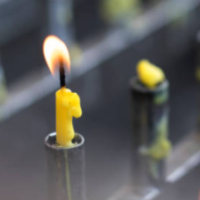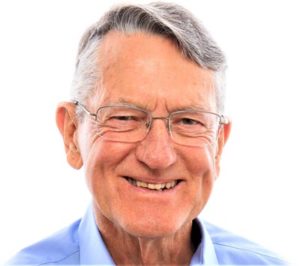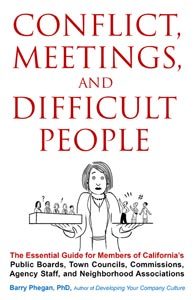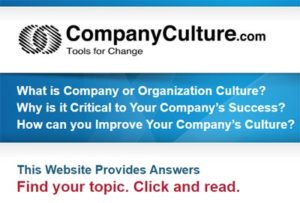“What happens after I die?”
“Lots of things, none of which will concern you.”
 I won’t be concerned after I die and wasn’t concerned before I was born. In between, concern seems part of living. Why am I concerned? Do concern, and its extensions worry and anxiety, come as a package? Are they built into our genes, or are they just the West’s current version of being conscious, of being alive?
I won’t be concerned after I die and wasn’t concerned before I was born. In between, concern seems part of living. Why am I concerned? Do concern, and its extensions worry and anxiety, come as a package? Are they built into our genes, or are they just the West’s current version of being conscious, of being alive?
Who am I?
I am a person, and a member of my self-identified groups, my chosen tribes. Our culture and my groups provide endless options for me to choose many possible roles: as engineer, grandparent, surfer dude, volunteer, good friend, employee, executive, barista, politician. It’s who I am, how I see myself, and how my groups see me. Underlying my choice of roles is my deep human need to be recognized and appreciated by my groups as a valuable contributor.
Because current American society is adversarial and divisive, being useful may push us to choose sides and defend or fight for our chosen group’s views and beliefs.
The Stage for Conflict
 Our culture endorses many battlegrounds for these fights, such as religion, sports, climate change, politics, and so on. You can also choose how intensely you want to be engaged — as a casual observer, angry blogger, talking head, anxious friend, mob insurrectionist, or mass killer. Whatever topic, and level of engagement you choose, powerful commercial interests will quickly find you. It’s hard to resist their siren calls if most of your tribe responds.
Our culture endorses many battlegrounds for these fights, such as religion, sports, climate change, politics, and so on. You can also choose how intensely you want to be engaged — as a casual observer, angry blogger, talking head, anxious friend, mob insurrectionist, or mass killer. Whatever topic, and level of engagement you choose, powerful commercial interests will quickly find you. It’s hard to resist their siren calls if most of your tribe responds.
Our leaders seem more interested in stoking the fires of opposing opinions and conflict than promoting national happiness or helping us understand and solve problems. It’s because publicly promoted conflicts, from sports to politics, attract votes, viewers, and dollars. Conflict is big business.
Leaders Profit from Concern and Deception
2000 years ago, the Roman philosopher Seneca observed. “Religion is regarded by the common people as true, by the philosophers as false, and by the rulers as useful.” Like religion, anxiety is a potent tool of leaders. There are many ways to build social anxiety.
A s a fresh immigrant to the United States, I was stunned by the importance of football and the intense emotions it generated. I quickly learned that liking football didn’t mean playing, it meant watching. The commercialization or monetization of sports is just one of this long “entertainment” menu to get worked up about. Conflict, battles, and cruelty as entertainment is an old tradition.
s a fresh immigrant to the United States, I was stunned by the importance of football and the intense emotions it generated. I quickly learned that liking football didn’t mean playing, it meant watching. The commercialization or monetization of sports is just one of this long “entertainment” menu to get worked up about. Conflict, battles, and cruelty as entertainment is an old tradition.
 Two thousand plus years ago the Greeks originated the arena, theater, and forum for athletics, plays, and public discussions. Later the centralized Roman state repurposed these venues into the Coliseum, with gladiator fights, chariot races, and the mauling of Christians by wild animals. Round out these community entertainments of their day with no-admission-fee crucifixions, and medieval hangings, burnings, and beheadings — mass-produced by the French with the guillotine. Then scale it up with modern weaponry for today’s evening’s news.
Two thousand plus years ago the Greeks originated the arena, theater, and forum for athletics, plays, and public discussions. Later the centralized Roman state repurposed these venues into the Coliseum, with gladiator fights, chariot races, and the mauling of Christians by wild animals. Round out these community entertainments of their day with no-admission-fee crucifixions, and medieval hangings, burnings, and beheadings — mass-produced by the French with the guillotine. Then scale it up with modern weaponry for today’s evening’s news.
 But whether your concerns are the latest baseball statistics, NFL combatants, TV miniseries, inequity and inequality, climate change, starvation, or war-torn Syria, Ethiopia, or Ukraine, you’ll be quickly ushered to a media outlet that stealthily monetizes your just concern into full-blown sleep-depriving anxiety.
But whether your concerns are the latest baseball statistics, NFL combatants, TV miniseries, inequity and inequality, climate change, starvation, or war-torn Syria, Ethiopia, or Ukraine, you’ll be quickly ushered to a media outlet that stealthily monetizes your just concern into full-blown sleep-depriving anxiety.
Avoiding Anxiety
Now, as my brief appearance on this planet draws towards its end, I’m reconsidering the same charge I was presented at birth. What is my best and most appropriate role, so I’ll feel valued and contributing? How can I still be appreciated and useful, without feeding the endless anxieties that plague our nation?
I’m terribly aware of the pulls in our culture to stake positions, take sides, “fight the good fight”, defend a just cause, and in doing so fall unwittingly and anxious into the puppet-masters hands.
A Better Way?
 It takes attention and effort to choose person over power, consensus over conflict, love over hate, small and local over grand but distant, unity over division, understanding over positions, action over indifference, care over disregard, and equality over inequity. At our stage in life, it’s a privilege and joy to consciously engage each and every day.
It takes attention and effort to choose person over power, consensus over conflict, love over hate, small and local over grand but distant, unity over division, understanding over positions, action over indifference, care over disregard, and equality over inequity. At our stage in life, it’s a privilege and joy to consciously engage each and every day.
I believe that when we die, a library dies with us. How can our libraries be best used? How can I remain useful and valuable?
 These questions aren’t a burden, stressful assignment, or task. They are a loose framework to help me better understand what to do for myself and for the world, and how to respond to opportunities right here in my little empire of one. As fellow travelers on life’s path, I’m sure you have similar thoughts and concerns. How are you thinking about wrapping up your brief visit to this wonderful experience called living? Do let me know. Thank you.
These questions aren’t a burden, stressful assignment, or task. They are a loose framework to help me better understand what to do for myself and for the world, and how to respond to opportunities right here in my little empire of one. As fellow travelers on life’s path, I’m sure you have similar thoughts and concerns. How are you thinking about wrapping up your brief visit to this wonderful experience called living? Do let me know. Thank you.
And thank you for reading.
Barry
Add Your Name below to my list to know when I have posted a new blog.




